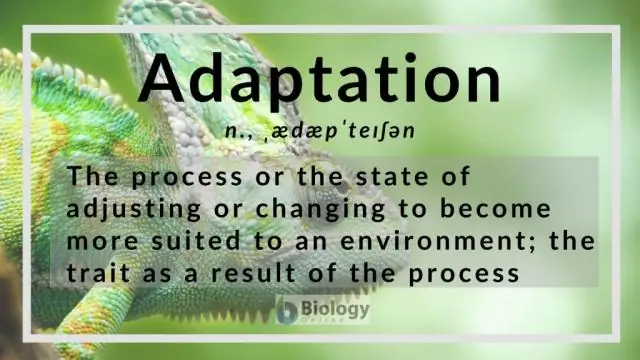- Author Rachel Wainwright wainwright@abchealthonline.com.
- Public 2023-12-15 07:39.
- Last modified 2025-11-02 20:14.
Adaptation of orphans
The adaptation of orphans concerns the issues of their active adaptation to life in an orphanage or foster family. Every year the number of abandoned children is growing steadily, and this problem has gained particular urgency.
Adaptation of a child in an orphanage

An orphanage is a public institution that must replace a child's family until his majority. With the help of educators, children learn to adapt to the social life they will enter after they turn 18.
The social adaptation of orphans consists in their assimilation of the values and norms of the society in which they live. Manifestations of adaptation consist in the interaction of children left by their parents with the outside world and in their vigorous activity.
When they talk about the social adaptation of orphans, they usually mean a complex set of pedagogical and educational measures. In fact, every child goes through this process in the course of his development.
The adaptation of a child in an orphanage is one of the components of social protection. It involves mastering one's own role in the system of social relations. This is achieved through the formation of skills in housekeeping, self-service, work skills.
There are the following stages of adaptation of children in the orphanage:
- Preparatory - from the moment of inclusion in a social group, it is associated with social diagnostics, determination of status, familiarization with the personal characteristics of the pupil;
- Inclusion in a social group - it involves assistance in adapting to the conditions of an orphanage;
- Assimilation of roles through participation in various activities with the accumulation of experience, new knowledge and skills;
- A stable adapted state, when children can solve almost any problem that arises in their natural environment.
Adaptation of adopted children in the family
Adaptation of foster children is different for everyone. Factors such as:
- Age of entering a child's home or orphanage;
- The presence or absence of previous experience of life in a family environment.
The adaptation of orphans also depends on the attitude of other family members towards them. It is desirable that everyone treats the adopted child evenly, without excessive emotionality, at first it will take a lot of patience and strength. Such children tend to prefer one person, showing warm feelings for him more than for other family members.

The older the age, the more difficult is the adaptation of orphans in the family. It is especially difficult in adolescence, when the usual problems for a teenager are added to the difficulties of adaptation of adopted children. At this time, such children can criticize foster parents, blame them for their troubles and bad mood, at the same time difficulties in communication with peers and the first love usually arise.
Difficulties of orphans in life
According to statistics, only 10% of graduates of orphanages successfully adapt to real life in society. 90% of them have difficulties in one or another aspect of interaction in society.
The most common difficulties experienced by former orphans are:
- The expectation that someone will take care of them, the hope for outside help;
- Underdeveloped proper attitude to work, lack of meaningful interest in work;
- Lack of experience with sufficient responsibility;
- Distorted ideas about the family and life in it;
- Insufficient self-presentation skills associated with the inability to monitor your appearance;
- Inability to correctly and clearly express your thoughts;
- Financial illiteracy, irresponsible attitude to money, inability to plan your expenses;
- Legal and legal illiteracy;
- Informational poverty of the mind due to the isolation and limited conditions of the orphanage, etc.
All this knowledge ordinary children receive naturally, living in a family environment. Due to insufficient self-esteem, orphans often cannot choose an educational institution to master a profession and work in low-skilled jobs. The task of teachers and foster parents is to ensure the safest and most painless adaptation of orphans.
Found a mistake in the text? Select it and press Ctrl + Enter.






